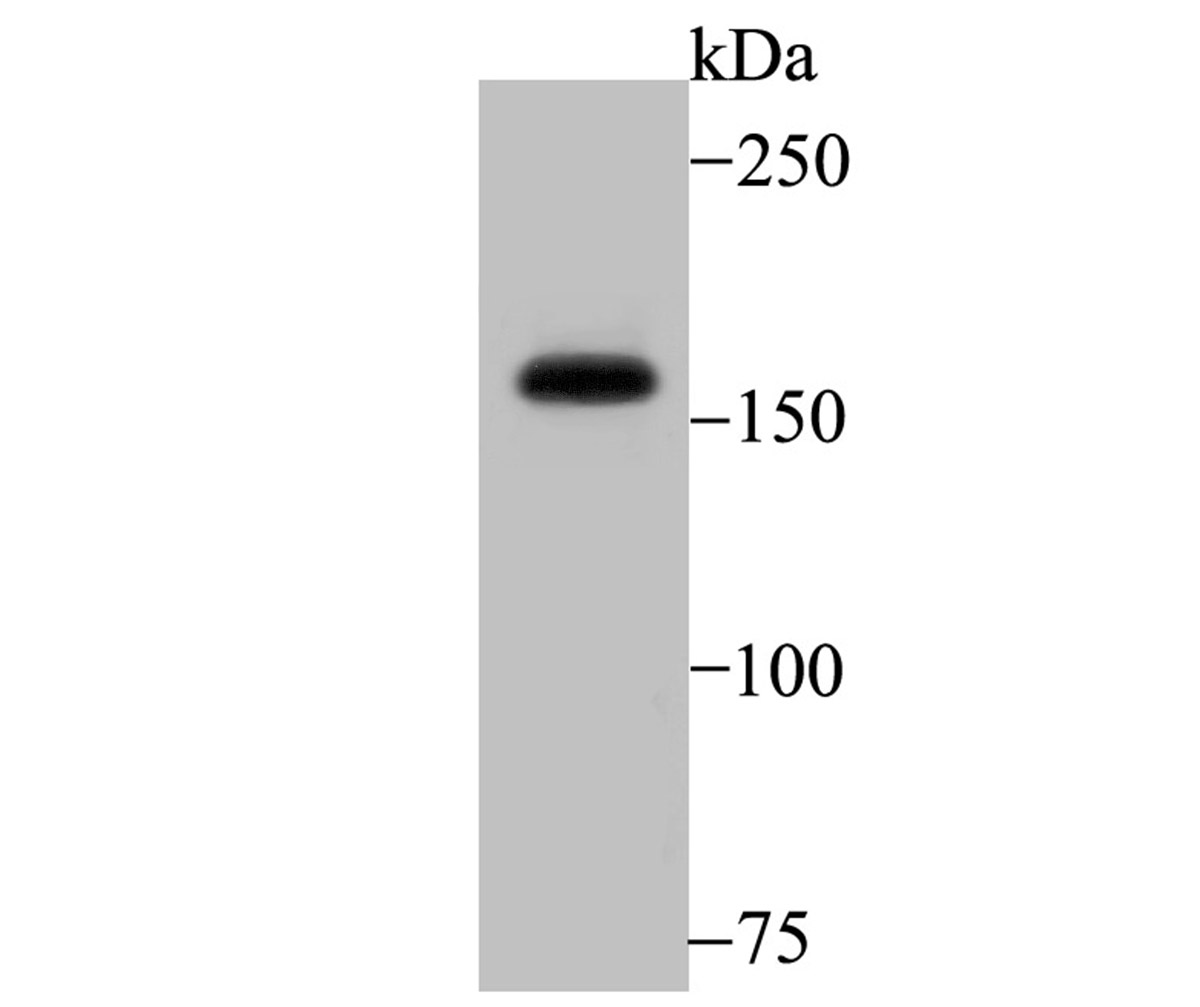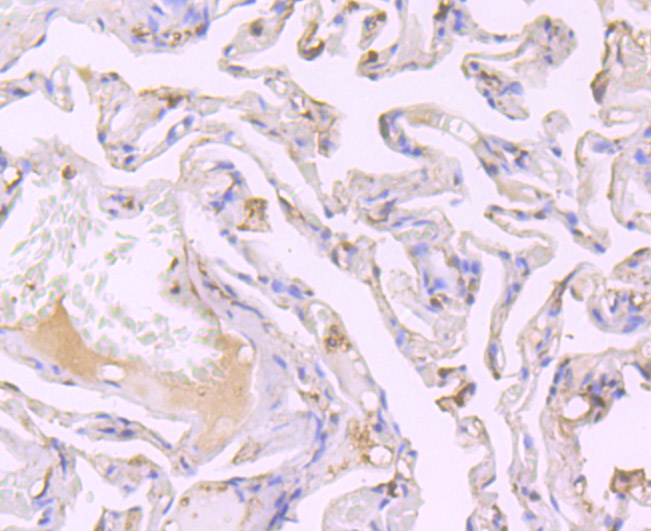Product Name :
SRC1 polyclonal antibody Background :
Nuclear receptors for steroids, thyroid hormones and retinoic acids are ligand-dependent transcription factors that activate transcription through specific DNA binding sites in their target genes. Several related transcriptional coactivators and corepressors have been described that work in concert with the steroid receptor family to either induce or repress transcription from hormone-responsive elements. This family includes GRIP1 (for GR interacting protein 1, also designated NCoA-2 or Tif2); SRC-1 (for steroid receptor coactivator-1, also designated NCoA-1); RAC3 (also designated AIB1, for amplified in breast cancer, or ACTR), which displays elevated expression in estrogen receptor positive ovarian and breast cancers; and p/CIP (for p300/CBP/Co-Integrator Protein), which is required for the transcriptional activation of p300/CBP-dependent transcription factors Product :
Rabbit IgG, 1mg/ml in PBS with 0.02% sodium azide, 50% glycerol, pH7.2 Storage&Stability :
Store at +4°C after thawing. Aliquot store at -20°C or -80°C. Avoid repeated freeze / thaw cycles. Specificity :
SRC1 polyclonal antibody detects endogenous levels of SRC1 protein. Immunogen :
Recombinant protein Conjugate :
Unconjugated Modification :
Unmodification
SRC1 polyclonal antibody Background :
Nuclear receptors for steroids, thyroid hormones and retinoic acids are ligand-dependent transcription factors that activate transcription through specific DNA binding sites in their target genes. Several related transcriptional coactivators and corepressors have been described that work in concert with the steroid receptor family to either induce or repress transcription from hormone-responsive elements. This family includes GRIP1 (for GR interacting protein 1, also designated NCoA-2 or Tif2); SRC-1 (for steroid receptor coactivator-1, also designated NCoA-1); RAC3 (also designated AIB1, for amplified in breast cancer, or ACTR), which displays elevated expression in estrogen receptor positive ovarian and breast cancers; and p/CIP (for p300/CBP/Co-Integrator Protein), which is required for the transcriptional activation of p300/CBP-dependent transcription factors Product :
Rabbit IgG, 1mg/ml in PBS with 0.02% sodium azide, 50% glycerol, pH7.2 Storage&Stability :
Store at +4°C after thawing. Aliquot store at -20°C or -80°C. Avoid repeated freeze / thaw cycles. Specificity :
SRC1 polyclonal antibody detects endogenous levels of SRC1 protein. Immunogen :
Recombinant protein Conjugate :
Unconjugated Modification :
Unmodification
-
 Western blot analysis of SRC1 on K562 cell lysate using anti- SRC1 antibody at 1/2,000 dilution.
Western blot analysis of SRC1 on K562 cell lysate using anti- SRC1 antibody at 1/2,000 dilution. -
 Immunohistochemical analysis of paraffin-embedded human lung cancer tissue using anti-SRC1 antibody. Counter stained with hematoxylin.
Immunohistochemical analysis of paraffin-embedded human lung cancer tissue using anti-SRC1 antibody. Counter stained with hematoxylin.
Bioworld Biotech only provide peptides for our antibodies and do not provide additional peptide customization services.
Price/Size :
USD 368/1mg/vial
Tips:
For phospho antibody, we provide phospho peptide(0.5mg) and non-phospho peptide(0.5mg).Describe :
Blocking peptides are peptides that bind specifically to the target antibody and block antibody binding. These peptide usually contains the epitope recognized by the antibody. Antibodies bound to the blocking peptide no longer bind to the epitope on the target protein. This mechanism is useful when non-specific binding is an issue, for example, in Western blotting (WB) and Immunohistochemistry (IHC). By comparing the staining from the blocked antibody versus the antibody alone, one can see which staining is specific; Specific binding will be absent from the western blot or IHC performed with the neutralized antibody.Formula:
Synthetic peptide was lyophilized with 100% acetonitrile and is supplied as a powder. Reconstitute with 0.1 ml DI water for a final concentration of 10 mg/ml.The purity is >90%,tested by HPLC and MS.
Storage:
The freeze-dried powder is more stable. For short time at 2-8°C. For long term storage store at -20°C.
Note :
This product is for research use only (RUO only). Not for use in diagnostic or therapeutic procedures.
 SRC1 polyclonal antibody
SRC1 polyclonal antibody  Datasheet
Datasheet COA
COA MSDS
MSDS SHIP
SHIP